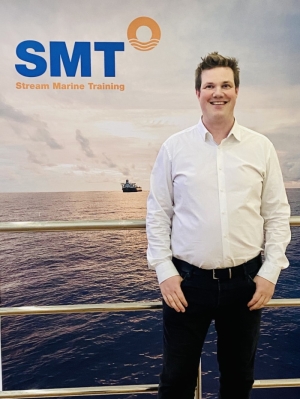


(Posted on 12/09/24)
Ammonia is fast becoming a potential alternative fuel for the future of green shipping but new fuels consultancy Stream Marine Technical (SMT) says there is still a long way to go in the development of the fuel as it takes a leading role in ammonia awareness training.
World leader in new fuels SMT, part of Stream Marine Group, has recently been acting as a consultant in Singapore and Western Australia in ammonia awareness training. It has also been assisting in the development of emergency response plans in bunkering. Meanwhile in Rotterdam, SMT has been involved in developing ammonia training for port staff in bunkering.
The company has also played a leading role with the Global Centre for Maritime Decarbonisation in putting together an emergency response plan to minimise the impact of accidental ammonia release and ensure the safety of crews and vessels.
Stream Marine Technical is a leading force in alternative fuels having trained some of the first seafarers in new fuels, including ammonia, methanol and LNG, Hydrogen. SMT provides companies with bespoke packages to ensure they are well-equipped to make the transition to using alternative fuels, carrying out an overall assessment and identifying any gaps in training or operational matters. Utilising its strong network of experts, it will also help implement a new safety management system or update the current one to ensure robust procedures are in place to ensure the full safety of crews.
The technical authority team for alternative fuels at Stream Marine Technical says there is not yet a definitive leading fuel as knowledge on all new fuels continues to evolve. Ship owners and managers are still taking in all the information that is rapidly coming out on new fuels before deciding which path to take to transition their vessels in order to meet the 2050 emission target goals set by the IMO.
Although ammonia is certainly gathering pace and companies are considering it more as an alternative fuel, it still has a way to go in terms of the availability of being totally carbon free and its affordability, explained Group CEO Martin White.
“There is still a lack of information and development in a lot of these fuels currently to say there is one definitive leading fuel coming out into the market. A lot of them need further development to ensure they are not only affordable and accessible, but more importantly carbon free. I think as we transition, ship owners will be looking at using a mix of fuels and ammonia is certainly in that mix.
“Cost efficiency is the main driver for shipping companies, as much as they want to be green and sustainable, they need to balance the books. Currently, ammonia and other new fuels are mostly more expensive than oil. They will come down in price I’m sure by the time we get to 2050 but currently they are too expensive for many companies.”
Bruks Siwertell Group has announced a leadership transition as Peter Jonsson steps down as CEO after... Read more
ClassNK has issued an approval in principle (AiP) for a Rigid Windsail Type Wind-Assisted Propulsion... Read more
Elcome International’s new high-speed internet service, WELCOME, is revolutionising the way ship... Read more
Kaiko Systems, a leader in AI-driven frontline intelligence for the maritime industry, today announced... Read more
Marcegaglia’s latest acquisition, the LHM 600, marks a significant milestone as the 2,000th mobile... Read more
The Isle of Man Ship Registry (IOMSR) is playing a key role in the development of a high-tech sail aimed... Read more
AtoB@C Shipping, subsidiary of ESL Shipping, has taken delivery of Terramar in Goa, India on 14 March... Read more
As a new strategy period commences, VIKING Life-Saving Equipment A/S has achieved strong financial results... Read more
Baltic Exchange has introduced a series of green fuel options to its FuelEU voyage and compliance cost... Read more
Veson Nautical, a global leader in maritime data and freight management solutions, and Cargill have... Read more